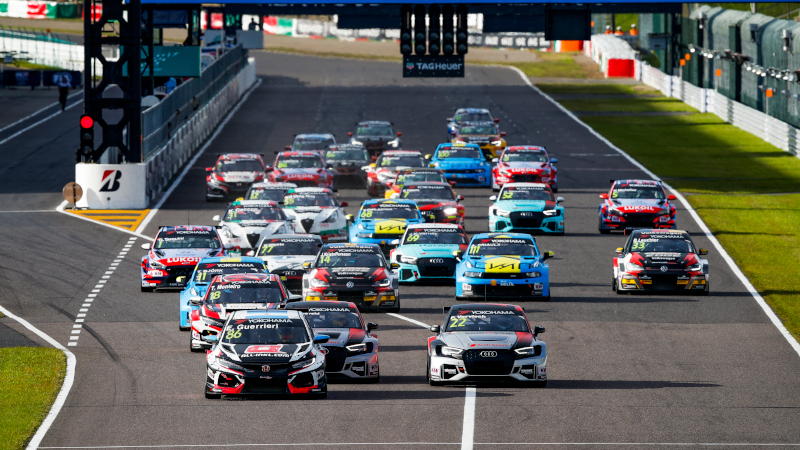The format of race weekends in the FIA World Touring Car Cup will be reduced to two races per weekend from 2020 onwards, dropping the Saturday race which had featured for the past two years.
Entering into its third season this year, WTCR has brought forward a number of cost-cutting measures which were originally to be implemented in 2021 due to ‘challenging market conditions’.
The changes are designed to ensure that a strong level of teams and drivers remains in the FIA-sanctioned series, which is already likely to see a reduction in involvement from Volkswagen-Audi Group brands Volkswagen and Audi in the coming season.
Series promoter Eurosport Events has acknowledged that there had been a rise in budgets since its inception in 2018, and is taking steps to reduce costs by reverting to the two-race weekend format used in the majority of other TCR series worldwide.
Eurosport acknowledged that there were ‘challenging market conditions’ and cited the recent outbreak of the COVID-19 virus (Coronavirus) in China as one example of the impact on the global economy.
With the Saturday race now abandoned, there will also only be one three-part qualifying session, giving drivers just one chance for pole position.
The two races will be of differing lengths, with race two generally being three laps longer than race one (excluding the Nürburgring Nordschleife). As in the World Touring Car Championship era, the grid for race one will be partially reversed.
The changes allow for a more compact weekend schedule, with race weekends now generally being two days unless the race weekend requires running over a longer period, such as in events at the Nürburgring and in Macau.
In order to attempt to limit costs in 2019, a team personnel limit was introduced. This will be refined for 2020, such that two-car teams will be limited to 12 personnel, three-car teams limited to 18 personnel.
Only 10 personnel will be assigned armbands which permit them to work on a car.
Last year, teams were only allowed to run two cars, although outfits worked around this by simply changing team entry names, such as in the case of ‘Cyan Racing Lynk & Co’ and its sister team ‘Cyan Performance Lynk & Co’.
Tyre allocations have been reduced from 22 for the first event and 18 thereafter, to 18 and 12 respectively.
With rising costs being a concern, a taskforce has been created in order to explore ways to further reduce costs in time for the 2021 season.
The moves are subject to approval by the FIA World Motor Sport Council when it meets in Geneva on 6 March.
“We have acted decisively and responsibly to protect WTCR, keep it strong for all the stakeholders, maintain its appeal among fans and media and ensure it remains attractive and accessible for new privateer teams wanting to race at the highest possible level of TCR,” said François Ribeiro, Head of Eurosport Events.
“Unsustainable budgets and acknowledging the impact the coronavirus outbreak is having on the global economy, has accelerated the introduction of a number of cost reduction measures and format changes developed together with the FIA and team representatives.
“But these changes are a must, not a nice to have and we must keep moving forward in a responsible fashion.
“However, Eurosport Events, in its role as the WTCR promoter, will not reduce the broadcast output or the marketing effort in order to protect the product that we deliver to the fans and the value and exposure we bring to the teams and sponsors involved.”
The entry deadline for teams for the coming season has been extended to 6 March 2020.

